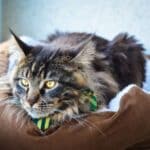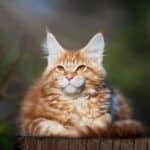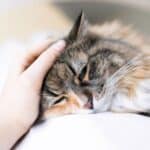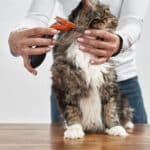Maine Coon is a large breed of cat prevalent in many countries around the globe.
A key thing to note is that 30% of members of this breed are prone to developing hypertrophic cardiomyopathy.
However, most owners lack knowledge about this disease.
If you have a Maine Coon and wondering about hypertrophic cardiomyopathy, you’re in the right place. Here is a complete healthcare guide to help you understand this disease.
Jump to:
- What Is Hypertrophic Cardiomyopathy In Maine Coons?
- The Two Types Of Hypertrophic Cardiomyopathy In Maine Coons
- Causes Of Hypertrophic Cardiomyopathy In Maine Coons
- Effects Of Hypertrophic Cardiomyopathy In Maine Coons
- How To Identify A Maine Coon With Hypertrophic Cardiomyopathy?
- Treatment For Hypertrophic Cardiomyopathy In Maine Coons
- Final Words
What Is Hypertrophic Cardiomyopathy In Maine Coons?
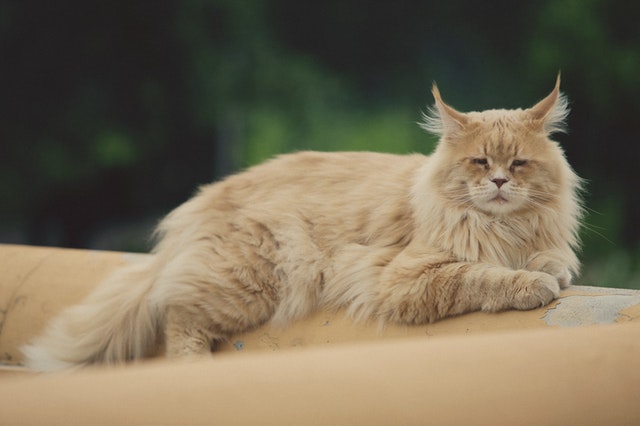
Hypertrophic cardiomyopathy is a genetic heart disease that many Maine Coons suffer from. The key feature of this condition is that it will cause your cat’s heart wall thickness to increase. Moreover, the disease progresses gradually with time causing more issues.
The primary effect of the thickening is that the Maine Coon's heart will not pump blood properly. This is why many areas of the body, such as the extremities, may face issues. For instance, your cat may suffer from respiratory problems due to inadequate circulation.
The Two Types Of Hypertrophic Cardiomyopathy In Maine Coons
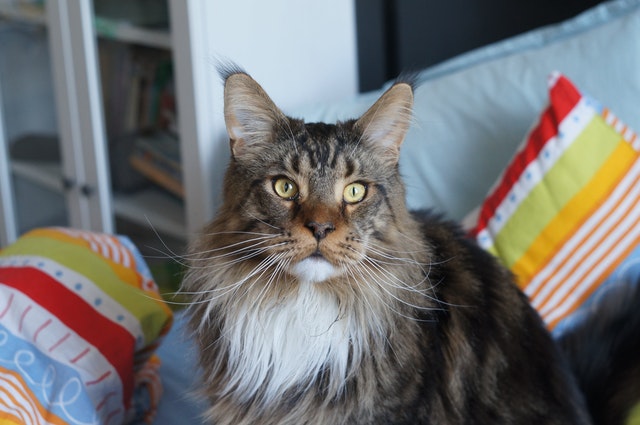
A key thing to note is that hypertrophic cardiomyopathy in Maine Coons can occur in two forms. If the condition is obstructive, the left ventricle of your cat’s heart will not close properly. This means that some blood will move back to the pet’s heart.
Meanwhile, the blood will leave the heart without issues when the condition is non-obstructive. Of course, you should note that the amount will still be lower. This is because of the heart wall thickening that restricts blood pumping.
Causes Of Hypertrophic Cardiomyopathy In Maine Coons
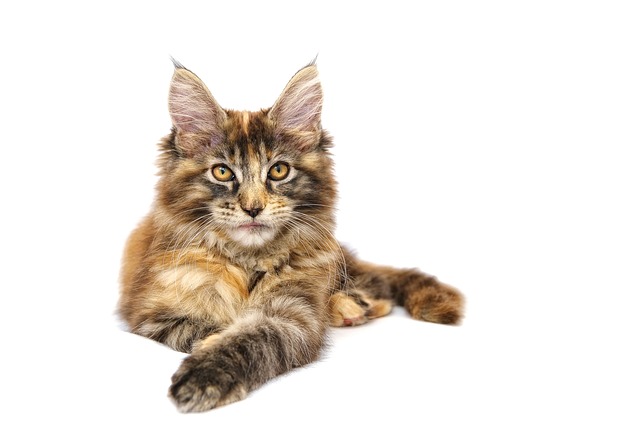
Here are the top causes that can lead to a hypertrophic cardiomyopathy in Maine Coons:
- Genetic
The primary known cause of hypertrophic cardiomyopathy in Maine Coons is genetics. This condition occurs because of a mutated gene that your cat may receive from its parents. If the animal has one copy of the mutated gene, it can suffer from the condition but will have a longer life.
Meanwhile, Maine Coons with two copies of the mutated gene tend to live a short life of not more than four years. However, you should remember that sometimes the gene may be dormant. This means that some Maine Coons can have the mutation but may not develop the disease.
- Taurine Deficiency
Taurine is a chemical that Maine Coons produce naturally in their bodies. It is reported that some cats suffering from taurine deficiency also have hypertrophic cardiomyopathy. Another thing to note is that the lack of this chemical mainly occurs because of genetic reasons.
However, you should remember that there is not much information about taurine deficiency's connection to this disease. If your cat has the condition because of this reason, you can cure it by changing your pet’s diet.
- Unknown Causes
The research about the causes of hypertrophic cardiomyopathy is still ongoing. This is why you cannot rule out other unknown causes of the condition. There have been cases in which the Maine Coon did not have the mutated gene but still developed this heart disease.
Effects Of Hypertrophic Cardiomyopathy In Maine Coons
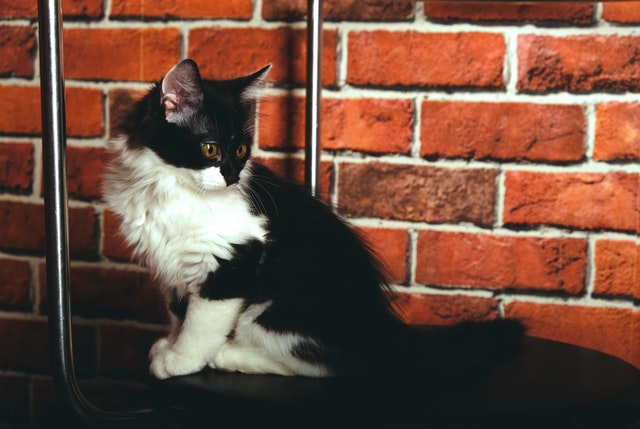
Here are the effects hypertrophic cardiomyopathy will have on your pet:
- Heart Failure
The top effect of this condition is that your cat will suffer from progressive heart failure. This is because the wall of this organ will continue to thicken with time. So blood flow from the heart to other body parts will be restricted.
Besides that, the heart will also receive lesser blood at once because of thickening. Another thing to note is that the ability of heart muscles to work correctly will also decrease. All this will eventually lead to heart failure in your Maine Coon.
- Sudden Death
Another complication of hypertrophic cardiomyopathy is that your pet may experience sudden death. This typically happens when your cat suffers from a rapid heart rhythm. The result of this irregular beat is that the Maine Coon will go into cardiac arrest.
Typically, when humans suffer from cardiac arrest, immediate medical attention can be helpful. However, animals don't have the same luxury and strong immune systems. This is why your Maine Coon can die before you get a chance to reach the vet.
- Pulmonary Edema
Pulmonary edema is a respiratory issue in which your Maine Coon's air sacs in the lungs will build up with fluid. This means that the pet will experience breathing issues and other respiratory problems. The top thing to note is that heart failure is the primary cause of pulmonary edema.
Because of the wall thickening, blood flow in your cat's body is restricted. This means that the oxygen demands of some muscles and body parts are not being met. When the condition becomes severe, the failure to keep up with circulation needs result in edema.
- Leg Paralysis
Legs are one of the top body extremities that suffer the most due to poor circulation. This is because they receive blood later than most other body parts. So a Maine Coon with hypertrophic cardiomyopathy is more likely to suffer from leg paralysis.
The leg muscles stiffen with time because of inadequate blood flow. This is why your pet may suffer from paralysis. In mild conditions, only one leg is affected. However, the number can increase as the disease progresses.
How To Identify A Maine Coon With Hypertrophic Cardiomyopathy?
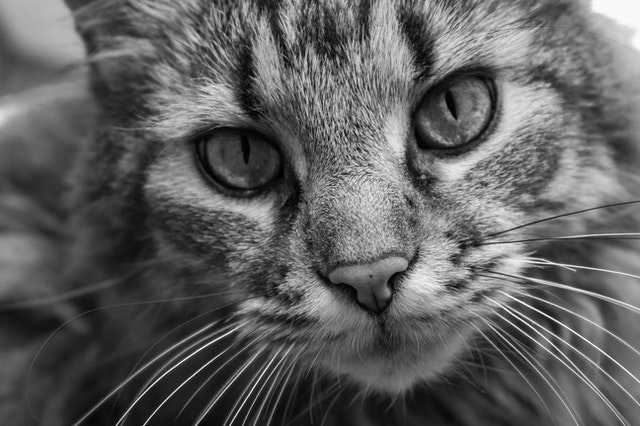
Are you worried that your Maine Coon may be suffering from this heart condition? If so, here are some vital symptoms that will help you identify the disease:
- Behavior Changes
The key thing to note is that Maine Coons suffer from various behavior changes because of cardiomyopathy. One of the main effects of the disease is lethargy because of poor circulation. So you may see your cat being tired most of the time if it has this condition.
Instead of moving around the house, you will notice your cat lying around most of the day. The pet will also stop running and jumping with time because of weakness. It can also hide around in small spaces to avoid contact with you.
Besides that, your Maine Coon will experience appetite loss gradually. So you should take notes of your cat’s eating habits. Typically, the pet will start eating less food abruptly and may end up not eating for days.
- Fainting
The primary effect of lethargy and weakness is that your Maine Coon may faint. This is because of less oxygenated blood reaching different parts of the body. Besides that, you may also see your pet being dizzy at times.
Another thing to remember is that your Maine Coon may also faint because of blood clots affecting the brain. This happens when the disease becomes more severe and heart failure progresses.
- Breath Shortness
Heart failure because of hypertrophic cardiomyopathy can lead to various respiratory issues such as edema. This means that your cat is more likely to suffer from breath shortness. Typically, you can identify this by closely observing your pet.
Shortness of breath will cause your Maine Coon to make a high effort to breathe. Sometimes, the cat may even open its mouth wide to take in more air. Not only that, but you may also find your pet panting because of breath shortness.
- Heart Murmur
The heart condition will cause your cat’s pulse to become weak with time. This is because of the poor circulation to and from the heart. So you can check your pet for this issue when diagnosing the disease.
Besides that, your pet may also be suffering from heart murmurs because of the wall thickening. The best way to identify this is by taking your Maine Coon to the vet. A physician will do a complete checkup and let you know.
- Medical Tests
Medical tests are the most reliable way to get your cat a proper diagnosis. A vet can run an electrocardiogram to check the heart for abnormal activity. Besides that, you can also get a DNA test done to see if your Maine Coon has the mutated gene.
A chest X-ray also helps diagnose respiratory issues that may be occurring because of cardiomyopathy. You can also take your pet for a physical checkup. The vet can look for a weak pulse, heart murmur, and much more.
Treatment For Hypertrophic Cardiomyopathy In Maine Coons
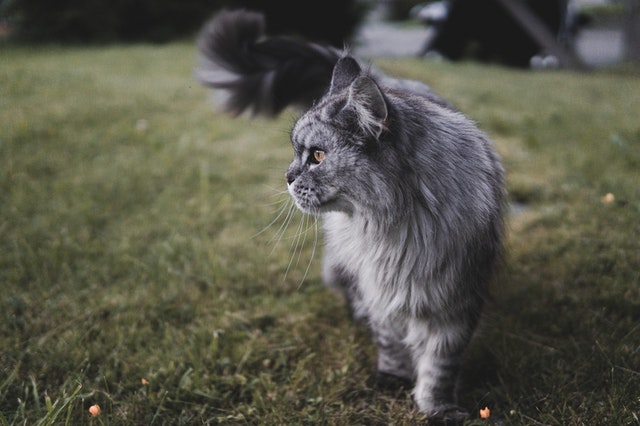
Unfortunately, there is no cure for this disease in Maine Coons because of various causes. The only thing you can do is make the journey easier for your pet by getting medications. Besides that, an excellent diet can also improve your Maine Coon's life quality.
Another thing to note is that some temporary treatments slow down the disease progression. However, there are no guarantees that your cat will respond to the therapy. The first thing you must do for treatment is getting a proper vet diagnosis.
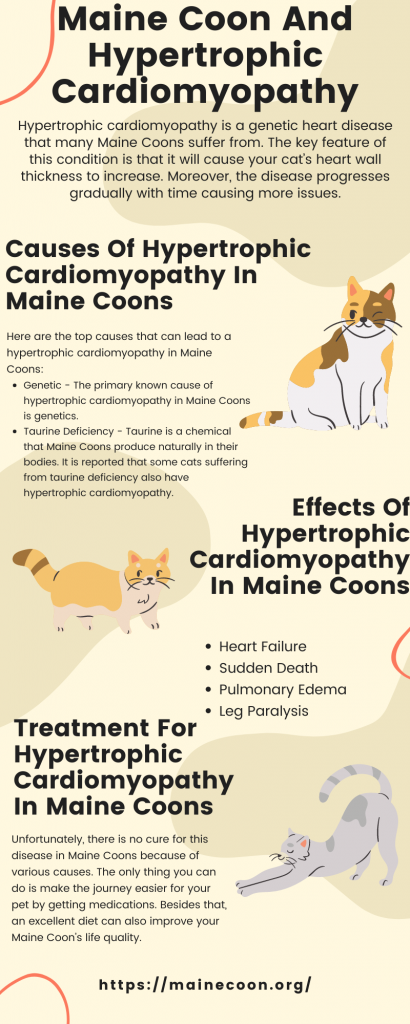
Final Words
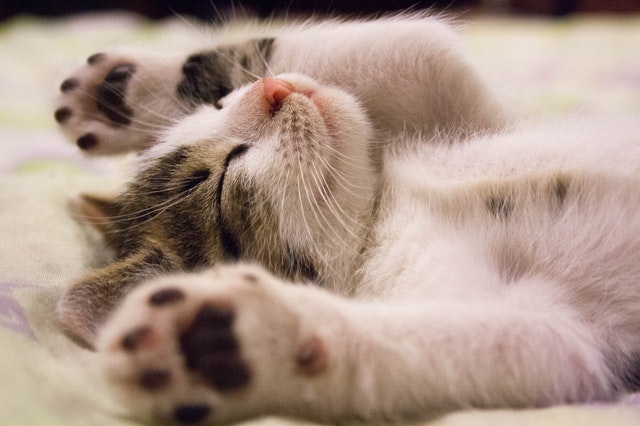
This is everything you need to know about a Maine Coon and hypertrophic cardiomyopathy. The top thing to understand is that this heart condition can lead to your cat's death. So you must get a DNA test and family history of your Maine Coon before adopting it.

